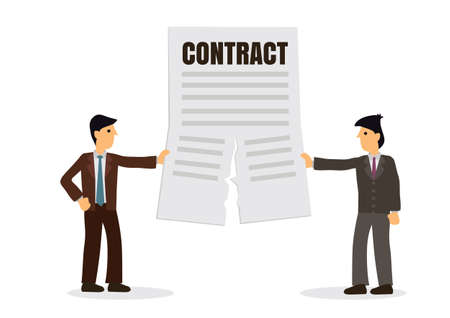Introduction to Communicating with UK Insurance Companies
Effective communication is crucial when dealing with insurance claims in the UK. Navigating the claims process can be stressful, especially if you are not familiar with British culture or the specific expectations of UK insurers. Understanding the right phrases and etiquette helps ensure your case is handled smoothly and efficiently. In Britain, clear, polite, and concise communication is highly valued, and this cultural nuance plays a significant role in how claims are processed. Whether you are making a claim after a car accident or reporting damage to your home, knowing how to interact with insurance representatives can make all the difference. This article provides a practical overview of why effective communication matters and highlights some key cultural considerations to keep in mind when speaking with UK insurance companies during the claims process.
2. Starting a Claim: Key Phrases and Initial Contact
Making the first contact with a UK insurance company can feel daunting, especially if you’re already dealing with the stress of an accident or loss. However, knowing how to introduce yourself and clearly state your claim can set a positive tone for the process. Below are some useful phrases and etiquette tips commonly used in the UK when starting an insurance claim, whether by phone or email. These practical examples will help ensure you communicate effectively and politely.
Introducing Yourself
When contacting your insurer, begin by politely introducing yourself and stating your policy details. This helps the customer service agent locate your records quickly.
Situation |
Useful Phrase |
|---|---|
| Phone Call Introduction | “Good morning, my name is [Your Name], and I’m calling regarding my home/auto/travel insurance policy. My policy number is [Policy Number].” |
| Email Introduction | “Dear Sir/Madam, I hope this message finds you well. My name is [Your Name] and I hold a [Type of Insurance] policy with you. The policy number is [Policy Number].” |
Stating Your Claim Clearly
After introducing yourself, it’s important to briefly but clearly describe why you are making contact. Being concise and factual is valued in UK communication, as it helps the process move efficiently.
Situation |
Useful Phrase |
|---|---|
| Explaining the Incident (Phone) | “I am calling to report a recent incident involving [brief description, e.g., water damage to my kitchen on 10th May]. I would like to start a claim.” |
| Explaining the Incident (Email) | “I am writing to notify you of an incident that occurred on [date]. There was [describe issue, e.g., accidental damage to my car], and I wish to initiate a claim.” |
Polite Etiquette Tips for First Contact
- Avoid slang or overly casual language: Use polite, formal English, especially in written communication.
- Thank the recipient for their time: For example, “Thank you for your assistance” or “I appreciate your help with this matter.”
- If unsure whom to address: Use “Dear Sir/Madam” at the start of emails or letters.
- Be patient and courteous: Remember that claims handlers are there to help; maintaining politeness often leads to smoother interactions.
Family Tip:
If you’re helping a family member start a claim—such as an elderly parent—ensure you have their permission and all relevant details on hand before contacting the insurer. This saves time and prevents confusion during the initial conversation.

3. Clarifying Information: Asking Questions Politely
When dealing with UK insurance companies, it’s crucial to ensure you fully understand every aspect of your claim. British communication values politeness and clarity, so asking questions or requesting clarification should be done in a considerate manner. Here are some essential English expressions and etiquette tips for clarifying information, checking policy details, and confirming you comprehend the process:
Polite Ways to Ask for Clarification
If something is unclear, start by expressing appreciation before posing your question. For example, you might say, “Thank you for explaining that. Could I just double-check my understanding?” or “I’m sorry, would you mind clarifying what that means in my case?” This approach shows respect and helps maintain a positive tone throughout your conversation.
Requesting Specific Details
It’s common to need more information about coverage or procedures. Use phrases such as, “Could you please confirm if this is covered under my policy?” or “Would it be possible to explain what documents I need to provide?” These expressions are both direct and courteous, encouraging helpful responses from insurance representatives.
Ensuring You Understand the Process
To avoid misunderstandings, summarise what you’ve heard and ask for confirmation. For instance: “Just to make sure I’ve got this right, the next step is to send in the claim form, isn’t it?” or “So, after submitting these documents, how long does it typically take to process the claim?” This method not only reassures you but also demonstrates your engagement and willingness to follow procedures correctly.
By using these polite and precise expressions when communicating with UK insurance companies, you can clarify important details without sounding demanding or impatient. Building a respectful dialogue increases the likelihood of smooth and efficient claims handling—something every family can appreciate during potentially stressful times.
4. Responding to Requests and Providing Further Documentation
When dealing with UK insurance companies during a claim, it’s common to receive requests for additional information or documents. How you respond can influence the efficiency and outcome of your claim. Using polite, formal language is essential in maintaining professionalism and ensuring clear communication.
Confirming Receipt of Requests
Upon receiving a request from your insurer, it’s courteous to promptly acknowledge their message. This reassures them that you are attentive and cooperative. Here are some useful phrases:
| Situation | Suggested Phrase |
|---|---|
| Acknowledging receipt of an email or letter | “Thank you for your email. I confirm receipt of your request regarding my claim.” |
| Request for further documents | “I have received your request for additional documentation and will gather the required information at the earliest opportunity.” |
Submitting Additional Information
When sending documents or further details, make sure your communication is clear and includes all necessary references such as your policy number and claim reference. Use formal language to maintain a professional tone. Example phrases include:
- “Please find attached the requested documents in support of my claim.”
- “I am enclosing copies of the receipts as per your instructions.”
- “Should you require any further information, please do not hesitate to contact me.”
Tips for Submitting Documents Effectively
- Ensure all files are clearly named (e.g., “PolicyNumber_DocumentType_Date”).
- Mention the format of the documents if relevant (PDF, JPEG, etc.).
- Double-check attachments before sending.
- If posting physical copies, mention expected delivery time: “I have posted the original documents via recorded delivery and anticipate they will arrive within 2-3 working days.”
Sample Email Template
Subject: Submission of Additional Documents – Claim Reference [Your Reference Number]
Dear [Insurers Name],
I am writing to confirm receipt of your recent correspondence regarding my insurance claim. Please find attached the additional documentation you requested.
If there is anything further required, kindly let me know.
Yours sincerely,
[Your Name]
5. Managing Delays and Expressing Concerns Respectfully
Delays in insurance claims can be frustrating, especially when your family is waiting for a resolution. In the UK, maintaining politeness and clarity is vital when you need to follow up on your claim or express concerns. Here are some practical tips and sample phrases that reflect British etiquette, helping you communicate effectively without sounding confrontational.
Tips for Enquiring About Claim Progress
- Be patient but persistent—British companies value courtesy but appreciate clear communication.
- Keep a record of previous correspondence and reference any claim numbers or dates in your enquiry.
- If calling, prepare a brief summary of your situation to save time and avoid confusion.
Sample Phrases for Enquiring
- “I wonder if you could provide me with an update regarding the status of my claim, reference number XXXX?”
- “Would you be able to let me know if there is any additional information required from my side to help progress the claim?”
- “I would appreciate it if you could inform me of any estimated timelines for completion.”
Handling Delays Diplomatically
- Acknowledge that delays sometimes happen, but express your hope for timely resolution.
- If the delay is causing inconvenience, explain the impact calmly and factually.
Sample Phrases for Addressing Delays
- “I understand these processes can take time, but I was hoping for an update as it’s been [duration] since I last heard from you.”
- “As we are relying on this claim to resolve our current situation, I’d be grateful if you could prioritise this matter where possible.”
Expressing Dissatisfaction Respectfully
- Stay factual and avoid emotional language.
- Request clarification or escalation if needed, but do so courteously.
Sample Phrases for Expressing Concerns
- “I am concerned about the length of time this process is taking. Could you please clarify if there are any issues causing the delay?”
- “If possible, could my case be escalated for review? I’d appreciate any assistance in expediting the process.”
A Family Perspective
Remember, setting a calm and respectful tone not only helps maintain positive relations with your insurer but also sets an example for younger family members watching how adults handle challenges. Using these phrases and tips will help ensure your concerns are heard while upholding the best of British courtesy during what can often be a stressful experience.
6. Common UK Insurance Terminology and Cultural Nuances
When dealing with UK insurance companies, understanding the local terminology and cultural subtleties can greatly enhance communication during claims. Below is a helpful glossary of frequently used terms, along with key cultural points to help you navigate conversations smoothly.
Glossary of Key Insurance Terms
Policyholder
The individual or entity that owns the insurance policy. In most cases, this is you or your family member making the claim.
Excess
This refers to the amount you must pay towards a claim before the insurer covers the rest. For example, if your excess is £200 and your claim is £1,000, you pay £200 and the insurer pays £800.
No-Claims Bonus (NCB)
A reward or discount given for not making any claims over a set period, commonly seen in car insurance policies.
Underwriter
The professional or company assessing risk and setting the terms of your policy. You may encounter this term when discussing why certain exclusions apply.
Loss Adjuster
An independent expert who investigates large or complicated claims to determine how much should be paid out. They might visit your home in person after events like flooding or fire.
Cultural Nuances in Communication
Politeness and Patience
British culture values politeness and measured conversation. Phrases like “Would you be able to help me…” or “I’d appreciate your assistance with…” go a long way. Avoid interrupting; let the representative finish their explanation before asking questions.
Directness with Tact
While being clear about what you need is important, it’s equally vital to remain tactful. For example, instead of saying “This is wrong,” try “I’m not sure I understand—could you clarify?” This fosters positive dialogue and reduces tension.
Punctuality and Documentation
Being punctual in returning calls or submitting documents is appreciated. Keep records of all correspondence—insurance companies often refer back to previous emails or phone calls as part of their process.
Family Application Example:
If you’re handling a household claim, involve all relevant family members early on so everyone understands terms like “excess” and can gather required documents promptly. This collaborative approach reflects both good etiquette and helps prevent misunderstandings common in multi-person households.
By familiarising yourself with these terms and cultural tips, you’ll not only feel more confident but also help ensure your communications with UK insurance companies are smooth and productive during every stage of your claim.
7. Practical Examples: Sample Emails and Calls to Insurance Companies
Understanding the right phrases and etiquette is one thing, but applying them effectively during real-life interactions with UK insurance companies can be challenging. Below are scenario-based examples that demonstrate how to use appropriate language and conduct in both written and verbal communications when making a claim.
Email Example: Reporting a Car Accident
Subject: Motor Insurance Claim – Reference No. 123456
Dear Claims Team,
I hope this message finds you well. I am writing to notify you of a recent incident involving my vehicle (registration number: AB12 CDE) that occurred on 15th March 2024.
Could you please advise me on the next steps required to process my claim? I have attached photos of the damage and a copy of the police report for your reference.
I would appreciate your prompt assistance with this matter. Please let me know if you need any further information.
Kind regards,
Sarah Jones
Email Example: Requesting an Update
Subject: Follow-Up on Home Insurance Claim – Policy No. H789012
Dear Sir or Madam,
I am writing to kindly request an update regarding my ongoing home insurance claim submitted on 1st April 2024.
Would it be possible to provide an estimated timeframe for when the assessment will be completed? Your guidance on any outstanding documents would also be greatly appreciated.
Thank you in advance for your attention to this matter.
Sincerely,
David Green
Phone Call Example: Clarifying a Claim Decision
Scenario:
The policyholder has received a decision letter and wishes to clarify certain points.
Phrases to Use:
- “Good morning, my name is Tom Williams. Im calling regarding my recent claim decision under policy number M345678.”
- “Could you please explain the reason for the outcome? I would appreciate some clarification on the points mentioned in your letter.”
- “Is there an appeals process I could follow if I wish to contest the decision?”
- “Thank you very much for your time and assistance.”
Phone Call Example: Emergency Assistance Request
Scenario:
The homeowner requires urgent help after a burst pipe.
Phrases to Use:
- “Hello, I need immediate assistance regarding an emergency at my property covered by my home insurance policy.”
- “There has been a burst pipe, and water is flooding my kitchen. What should I do next?”
- “Could you arrange for an emergency plumber, please? And do I need to provide any documentation at this stage?”
- “Thank you for your swift response.”
Family Application: Involving Family Members in Claims Communication
If another family member needs to speak on your behalf, always inform your insurer in advance:
“I would like to authorise my daughter, Emily Brown, to discuss this claim with you as I am currently unwell. Could you confirm what details she will need to verify her identity?”
This ensures a smooth process and demonstrates respect for privacy regulations commonly upheld in the UK.
By using these practical examples, you can communicate clearly, courteously, and effectively with UK insurance companies during claims—ensuring your concerns are addressed promptly and professionally.


